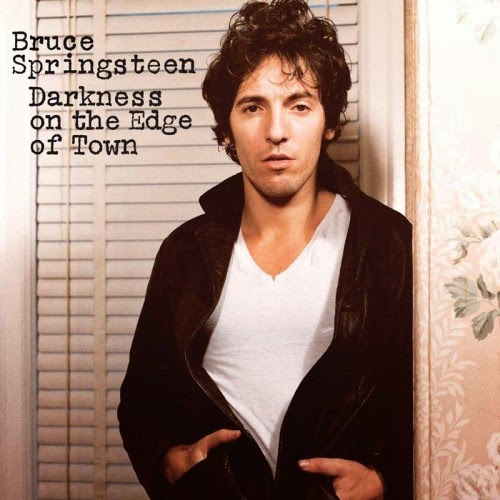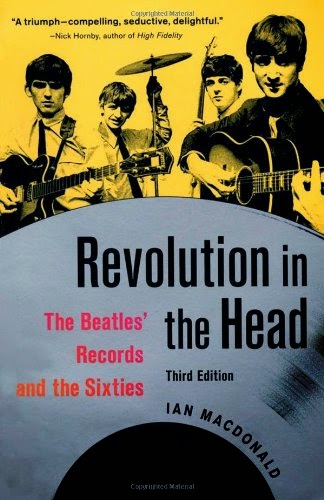Released in
1978, Darkness on the Edge of Town was
Bruce Springsteen’s fourth studio album, and the first release following his breakthrough
album Born to Run, an album that took
him to levels of superstardom to the point that many critics declared him as
being the savour of rock. However, Springsteen suffered somewhat from a three
gap between releases as he was involved in a bitter dispute with his former
manager for the rights and control of his music. This impacted on his new found
momentum following Born to Run,
meaning that “Darkness” in many ways was a make or break album for Springsteen
and a record where he needed to prove that he wasn’t just a flash in the pan
one album wonder.
Musically, Darkness
is quite a step away from Born to Run and
is not as full on in terms of its overall production and sound. Gone is the
wall of sound style that was a constant on his previous album and in its place
comes a sense of maturity I guess, musically, with Springsteen spending more
time in the studio crafting songs and developing ideas instead of following rigid
musical arrangements. Just one of the musical casualties from the Born to Run sound aside from the layered
production, was the heavy sax presence of Clarence Clemons who definitely takes
a backseat on this album, while the band as a whole are much tighter on here. This
comes as no surprise as Springsteen himself has said subsequently how he wanted
a leaner and less grand affair than Born
to Run. The song-writing is also quite a departure from Born to Run and thematically looks more
at Springsteen’s life growing up in small town America, while taking influence
from his managerial struggles of the time.
Many of the song titles reflect this sense of tension, while also portraying
a sense of doom descending, with “Badlands”, “Streets of Fire” and “Darkness on
the Edge of Town” being just some examples of this. Springsteen was also so
intent on keeping the overall thematic feel of the album and its essence intact
to the point that many of the 70 odd songs he wrote and recorded around this
time were left off the album as they did not fit in with the overall concept.
Many of these songs would subsequently appear on future releases instead.
Darkness on the Edge of Town is full of standout tracks, starting
with the anthemic opener “Badlands”, one of Springsteen’s most loved tracks and
what he traditionally plays to start his concerts. Out of all the tracks on the
album this one probably resembles the Born
to Run sound the most with its chiming piano, pounding drums and a rare sax
solo. The album then takes a slightly different turn on the following track “Adam
Raised a Cain”, an aggressive raw guitar track which also has a punk attitude
about it when compared with what was going on elsewhere musically at the time.
This track is then followed by the quite emotional rock ballad “Something in
the Night”, a beautiful song that begins with some soaring moans from
Springsteen himself before transitioning into quite a powerful and reflective
song. “The Promise Land” is a harmonica laden rock number that also has a thunderous
sing-a-long chorus and a brilliant sax solo, while “Prove It All Night” is
quite an interesting song musically, containing different things that jump out
at you throughout like the slightly Asian sounding piano opening and the tracks
subtle overall rock and roll dance feel. Finally, album closer “Darkness on the
Edge of Town” pretty much sums up the album both lyrically and musically, as
well as capturing the essence of its message. All of the musical elements seen
on the album are pretty much at play on this song, while it also contains
somewhat of a gospel feel in the vocals. A great track to end what is on the
whole a great sounding album.
Darkness on the Edge of Town remains one of Springsteen’s most
highly regarded albums and is even rated as high as 150 on Rolling Stone magazines
top 500 albums of all-time list. Its enduring legacy is also seen through how
it was re-issued as part of a box set titled “The Promise” in 2010, a very
expansive and expensive set that also included an album made up some of the
tracks left off the original album that had not been released, as well as an accompanying
documentary which gave a very insightful look into the making of the album and
Springsteen’s methods in the studio. In conclusion then, I would say that “Darkness”
is a very honest record with a more focussed sound than seen on other
Springsteen releases. It may lack the stylistic diversity of some of his other
more seminal albums, but this is made up for by some solid song-writing as well
as some interesting musical moments. This album definitely features in his top
five and in many respects is an underrated late-70s rock classic.
A-
Sam





